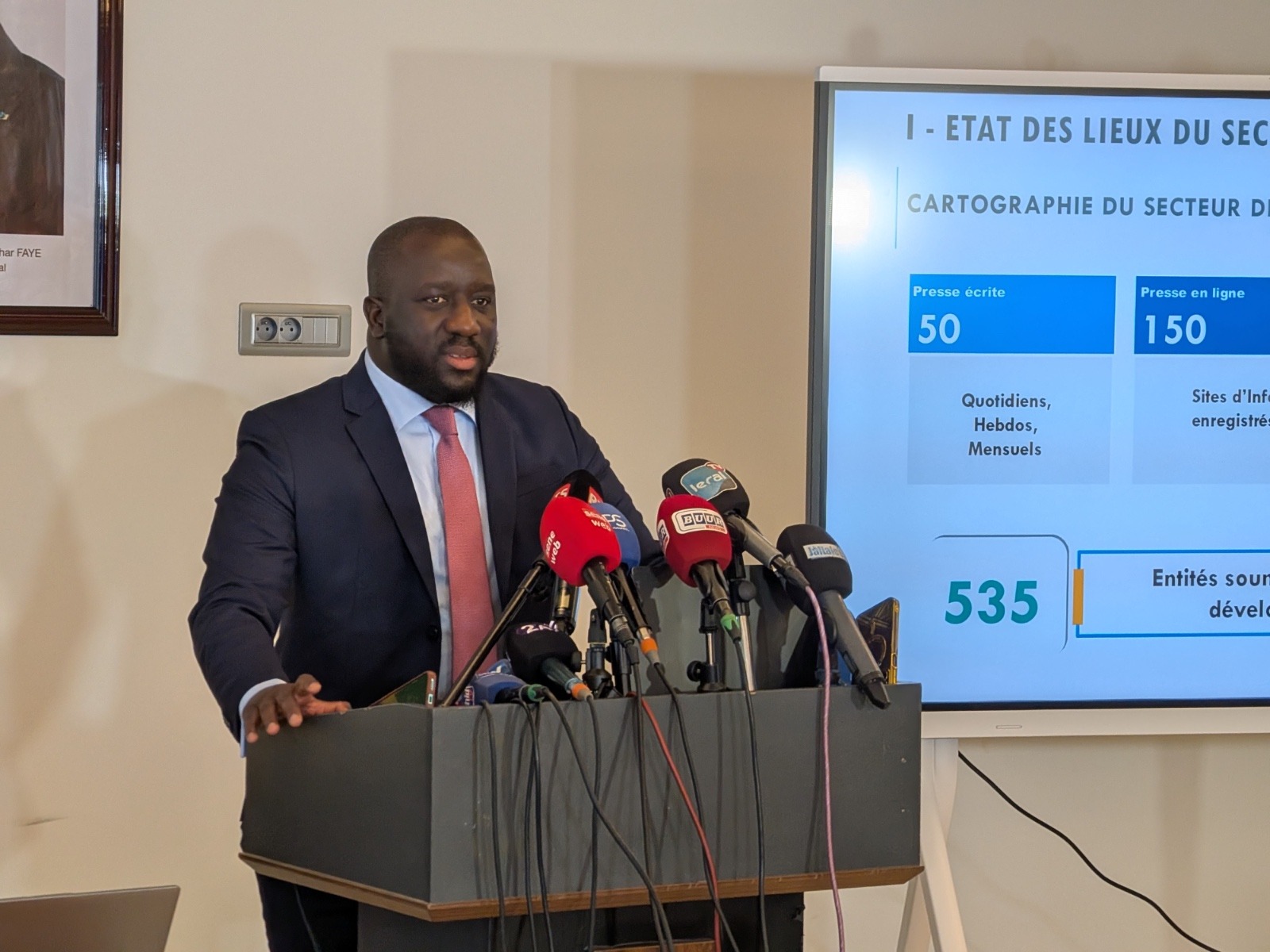Gambiaj.com – (DAKAR, Senegal) – A new decree issued by Senegal’s Minister of Communication, Telecommunications, and Digital has ordered the immediate cessation of all dissemination, publication, and sharing of content by media outlets deemed to be in violation of the country’s press code. The official decree, made public on Thursday, cites Law No. 2017-27 of July 13, 2017, relating to the press code, and Decree No. 2024-953 of April 8, 2024, defining the minister’s powers, as the legal basis for the sweeping measure.
The decree targets all forms of media in Senegal—online, print, and audiovisual. It specifically mandates that non-compliant media outlets must immediately cease all content-sharing activities. Online press companies found to be in violation of Article 178 of the press code are ordered to suspend their broadcasts, facing potential sanctions under Article 193.
Similarly, print media companies not adhering to Articles 66 to 72 must halt publications, with penalties outlined in Articles 194, 195, 200, 203, and 204. Audiovisual media operating without proper authorization as per Article 94 are instructed to immediately cease broadcasting.
Adding another layer of concern, Article 5 of the decree explicitly states that any individual disseminating content from non-compliant media or found to be sharing false news will be subject to sanctions under the penal code.
This move by the Senegalese authorities comes against a backdrop of stated efforts to have a tighter grip on and strengthen the regulation of the national media landscape and combat disinformation and what they term “anarchy” within the sector.
Implications for Media and Press Freedom in Senegal
Media rights organizations and civil society in Senegal believe the decree carries significant implications for media and press freedom in Senegal, as the Minister of Communication in Senegal has been granted broad authority to shut down non-compliant media outlets, raising concerns about potential overreach and the government’s ability to silence critical voices.
These organizations argue that the decree’s vague nature and reliance on vaguely defined articles could lead to arbitrary application and a chilling effect on journalistic work. The targeted online press companies could restrict online freedom of expression.
The cessation of activities for non-compliant media could limit the public’s access to diverse sources of information and potentially stifle critical reporting. The risk of penal code sanctions for sharing content from targeted media or “false news” could further intimidate journalists and the public.
The implementation of this decree will be closely watched both within Senegal and internationally, as it could signal a significant shift in the government’s approach to media regulation and commitment to press freedom.










